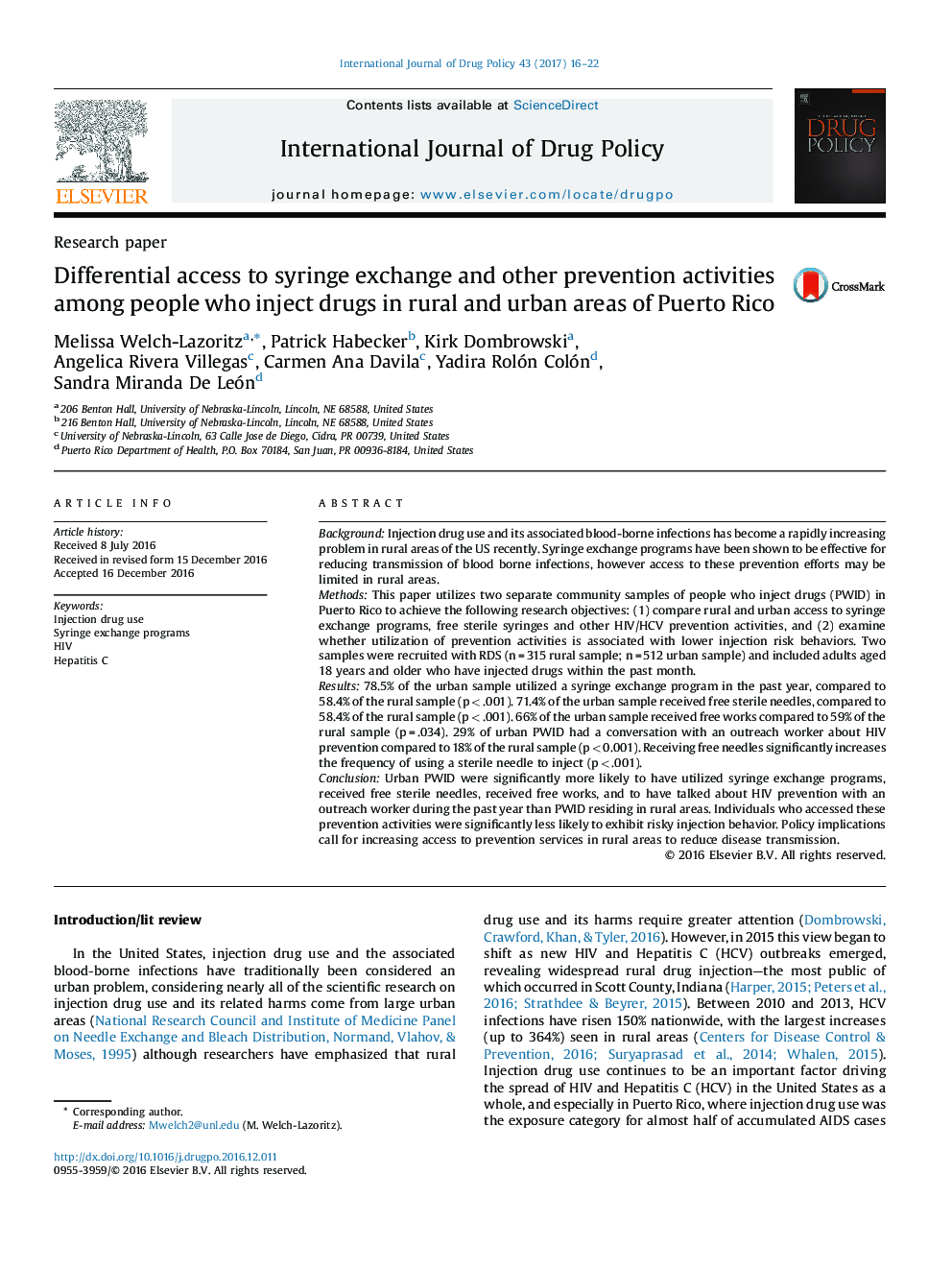| کد مقاله | کد نشریه | سال انتشار | مقاله انگلیسی | نسخه تمام متن |
|---|---|---|---|---|
| 5120886 | 1486262 | 2017 | 7 صفحه PDF | دانلود رایگان |
BackgroundInjection drug use and its associated blood-borne infections has become a rapidly increasing problem in rural areas of the US recently. Syringe exchange programs have been shown to be effective for reducing transmission of blood borne infections, however access to these prevention efforts may be limited in rural areas.MethodsThis paper utilizes two separate community samples of people who inject drugs (PWID) in Puerto Rico to achieve the following research objectives: (1) compare rural and urban access to syringe exchange programs, free sterile syringes and other HIV/HCV prevention activities, and (2) examine whether utilization of prevention activities is associated with lower injection risk behaviors. Two samples were recruited with RDS (n = 315 rural sample; n = 512 urban sample) and included adults aged 18 years and older who have injected drugs within the past month.Results78.5% of the urban sample utilized a syringe exchange program in the past year, compared to 58.4% of the rural sample (p < .001). 71.4% of the urban sample received free sterile needles, compared to 58.4% of the rural sample (p < .001). 66% of the urban sample received free works compared to 59% of the rural sample (p = .034). 29% of urban PWID had a conversation with an outreach worker about HIV prevention compared to 18% of the rural sample (p < 0.001). Receiving free needles significantly increases the frequency of using a sterile needle to inject (p < .001).ConclusionUrban PWID were significantly more likely to have utilized syringe exchange programs, received free sterile needles, received free works, and to have talked about HIV prevention with an outreach worker during the past year than PWID residing in rural areas. Individuals who accessed these prevention activities were significantly less likely to exhibit risky injection behavior. Policy implications call for increasing access to prevention services in rural areas to reduce disease transmission.
Journal: International Journal of Drug Policy - Volume 43, May 2017, Pages 16-22
